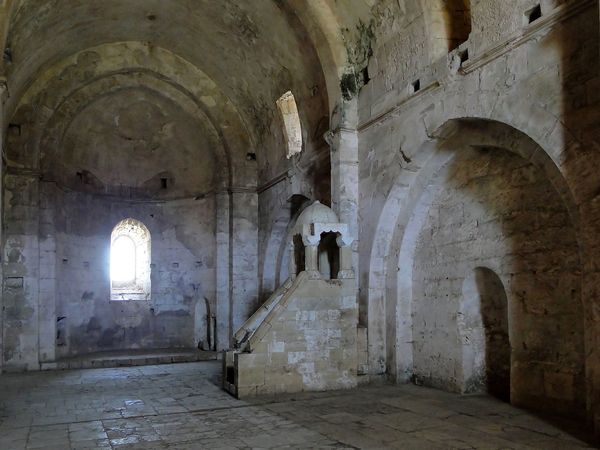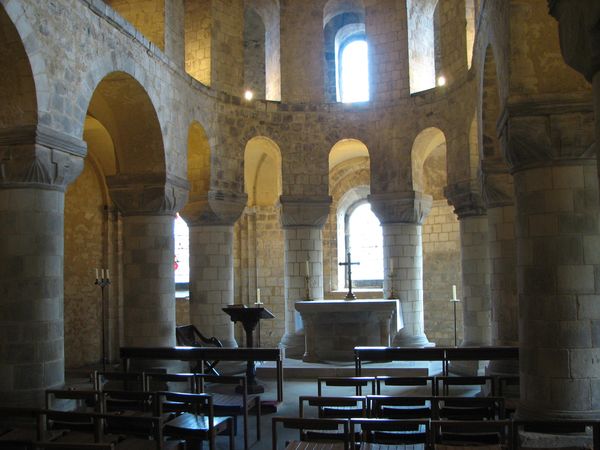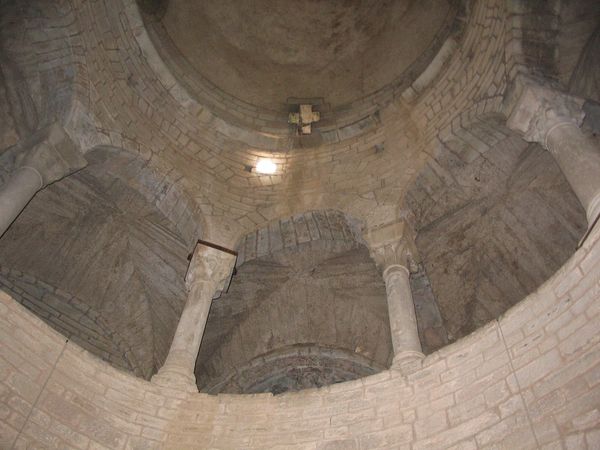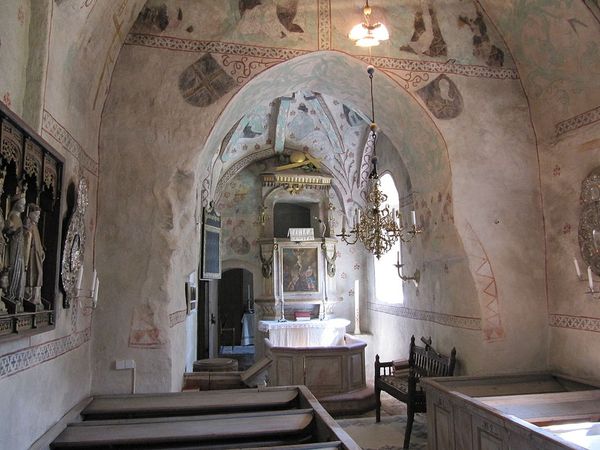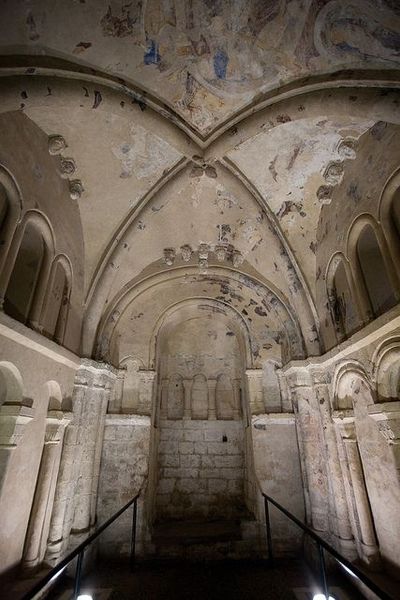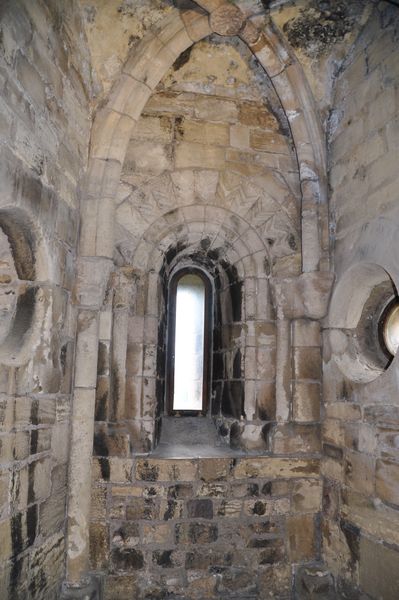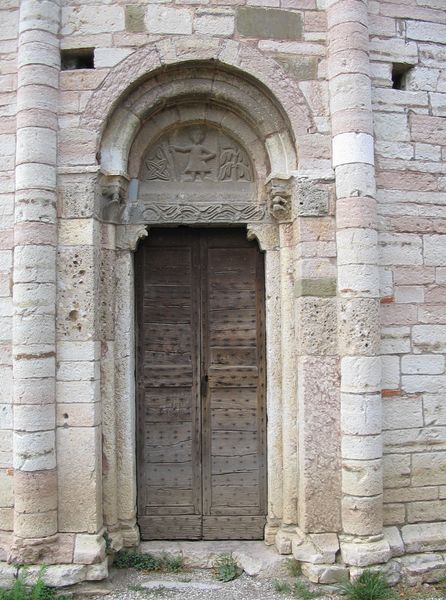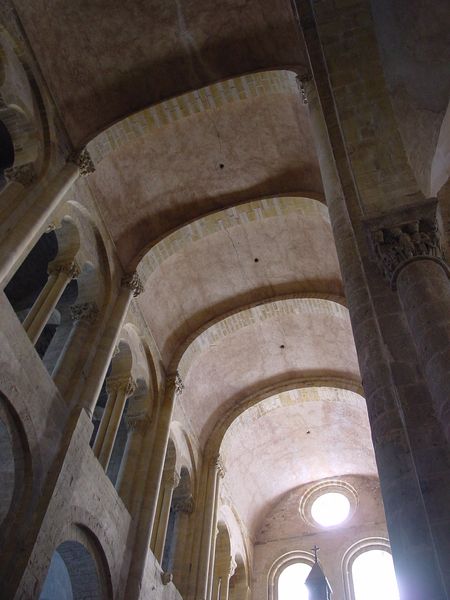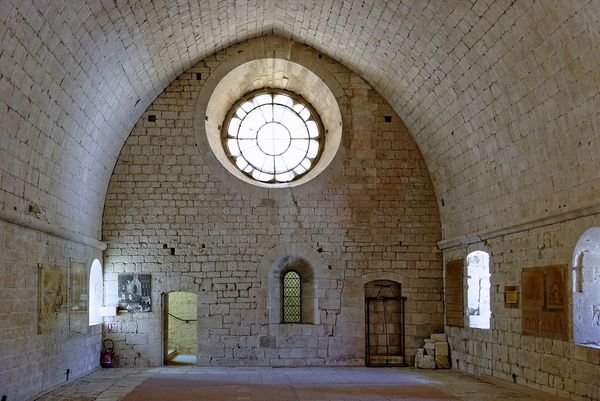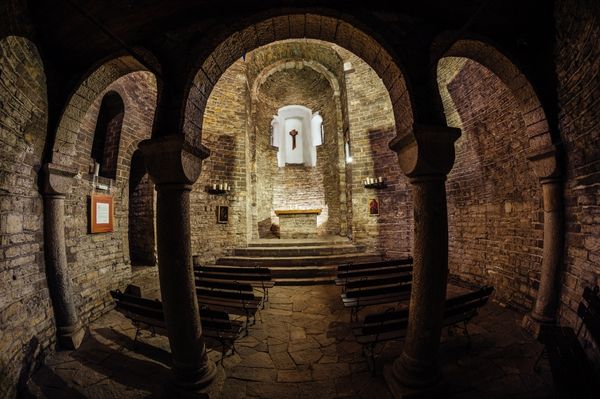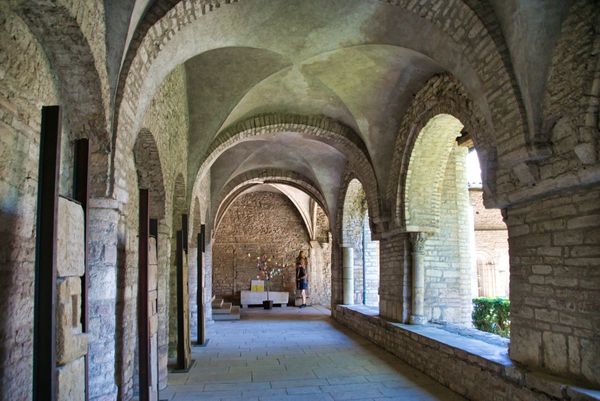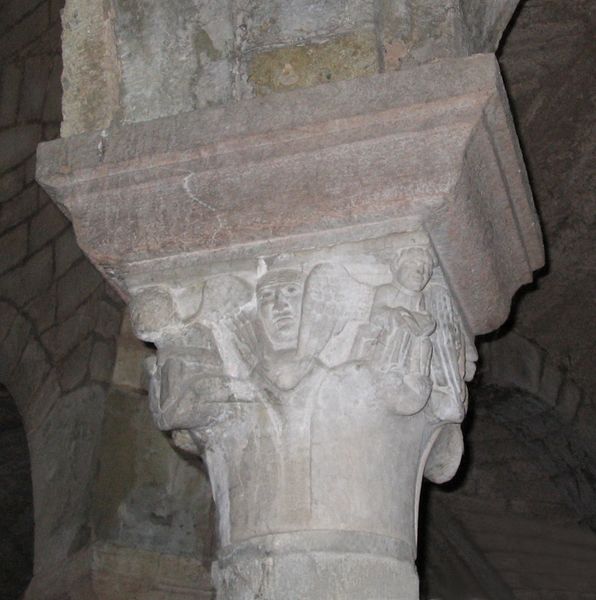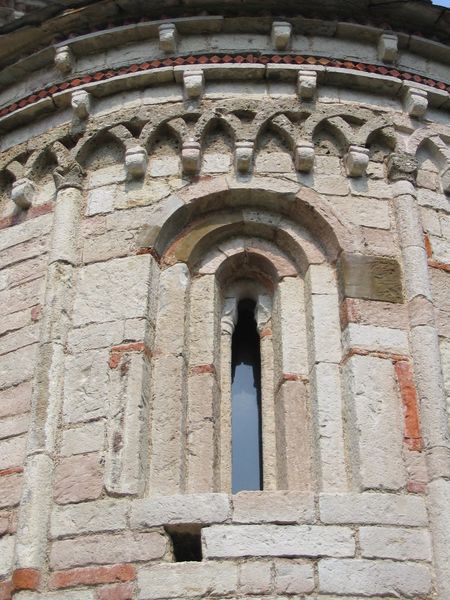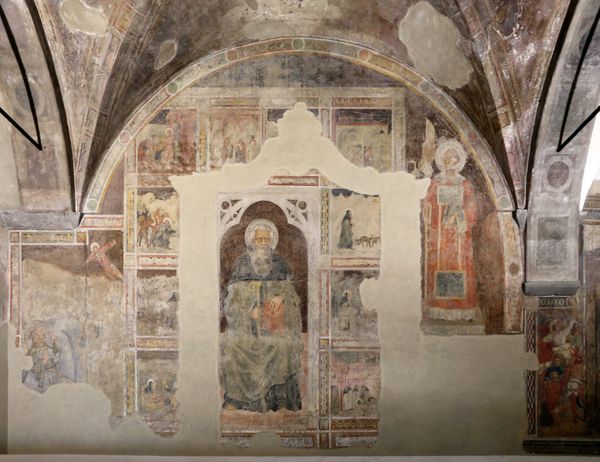
marble, architecture
#
medieval
#
romanesque
#
brick
#
geometric
#
marble
#
architecture
Copyright: Public domain
The interior of the Rotunda of San Tomè in Bergamo, Italy, dating back to the Romanesque period, reveals a potent dialogue between architectural forms and symbolic resonance. The columns, with their stylized Corinthian capitals, rise like silent sentinels, echoing classical motifs adopted and reshaped by early Christian builders. Circular structures such as this Rotunda, since antiquity, symbolize the cosmos, eternity, and divine perfection, a concept found from the Pantheon in Rome to the Hagia Sophia in Constantinople. These architectural forms elicit a sense of awe and reverence, connecting us to layers of collective memory. This is a conscious act, yet deeply entrenched in the subconscious. The simple, solid construction of the Rotunda elicits a primal sense of protection. San Tomè serves as a powerful testament to how forms and symbols are continuously reshaped by cultural memory. In this cyclical, non-linear progression, architecture becomes an open conduit to a vast, interconnected network of human expression.
Comments
No comments
Be the first to comment and join the conversation on the ultimate creative platform.
